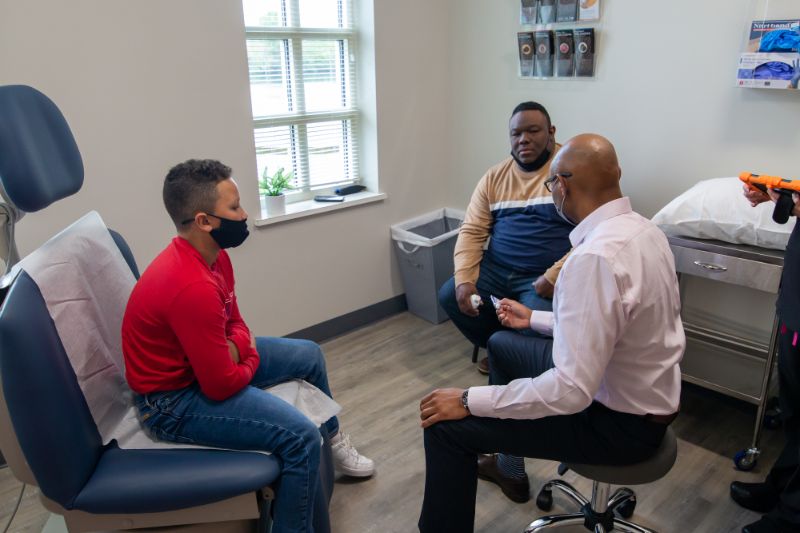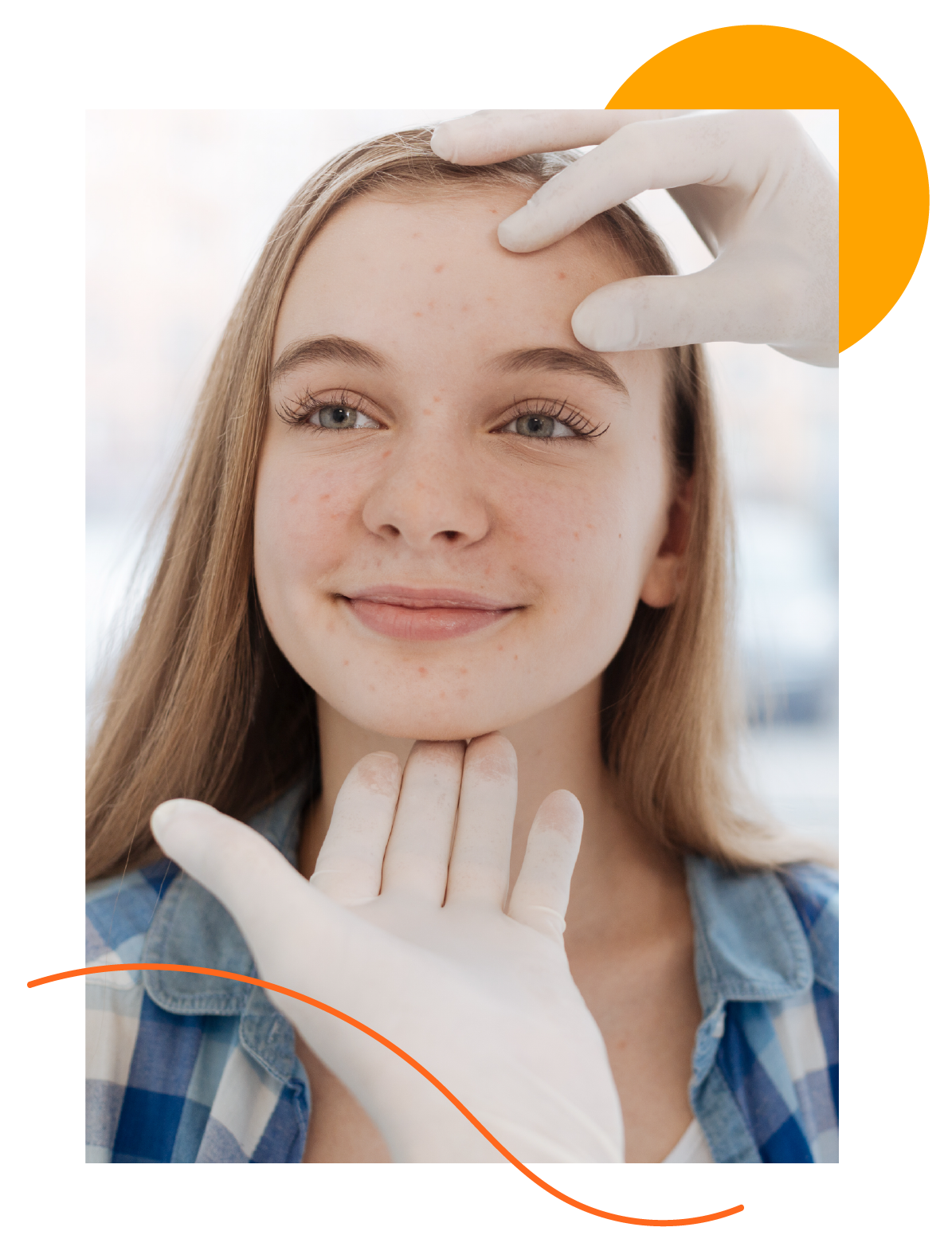HIVES
Determining And Treating The Root Cause Of Your Hives
Hives, also known as urticaria, are itchy, red or skin-colored bumps that appear after exposure to an allergen. They are generally very itchy and can form as one bump, many bumps in an area or widespread large bumps covering the entire body. They can be round or take on any random shape. People can develop hives after being exposed to a known or unknown allergen either through ingesting the allergen or coming in contact with it.
Causes of Hives
Allergies can play a major role in the occurrence of hives. However, there can be other causes, such as:
- Emotional stress
- Extreme temperature changes such as extremely cold and very hot
- Sun exposure
- Viral infections
- Blood transfusions
- Pressure or friction on the skin, such as with tight clothing
- Hormonal changes
- Medications
- Insect bites or stings
- Exercise

Most people who get hives experience them for a brief period of time, and after treatment, they go away. Acute cases are most often caused by exposure to an allergen such as food or pollen. Chronic or more long-term episodes can last for more than 6 weeks. The foods that most often cause hives are:
- Tree nuts
- Peanuts
- Dairy
- Egg
- Shellfish
If you have food allergies, it is important to avoid the foods that trigger hives. Hives may often accompany an even more severe allergic reaction called anaphylaxis, which is swelling of the lips, tongue, throat and airway and may cause nausea and vomiting. Anaphylaxis is an emergency for which you need to call 911.
Diagnosing and Treating Hives
If you have been exposed to a known allergen and develop hives, then the cause is easily diagnosable. In some cases, patients can develop them for unknown reasons and therefore some investigation may be required to determine the cause. Patients may need to participate in journaling their diet and exercise as well as what they are wearing to get a clearer picture of what could be causing the hives. At Complexions Dermatology, we will work with you to help determine the root cause. We may offer skin testing or blood testing to help identify your specific sensitivities.
Hives can be treated topically with anti-itch cream or over-the-counter hydrocortisone cream. Patients may also take an over-the-counter antihistamine to help combat the itching. For severe cases of hives, patients may require a temporary oral steroid treatment. If it is determined that you have a food allergy or a severe allergy to insect bites or stings, you will need to be prescribed an epinephrine auto-injector or an Epi-Pen.
To manage hives caused by allergies, it is important to strictly avoid triggers at all times. Once you have determined what your allergen is, you will want to limit your exposure to the known triggers. Sometimes lifestyle changes may be required to reduce or prevent developing the itchy rash such as using unscented soaps and laundry detergent. Complexions Dermatology will work with you in developing a treatment plan. If you have any questions or concerns about hives or would like to learn more, call Complexions Dermatology at our Danville location (434) 792-0423 or our Colonial Heights location (804) 805-8442.




